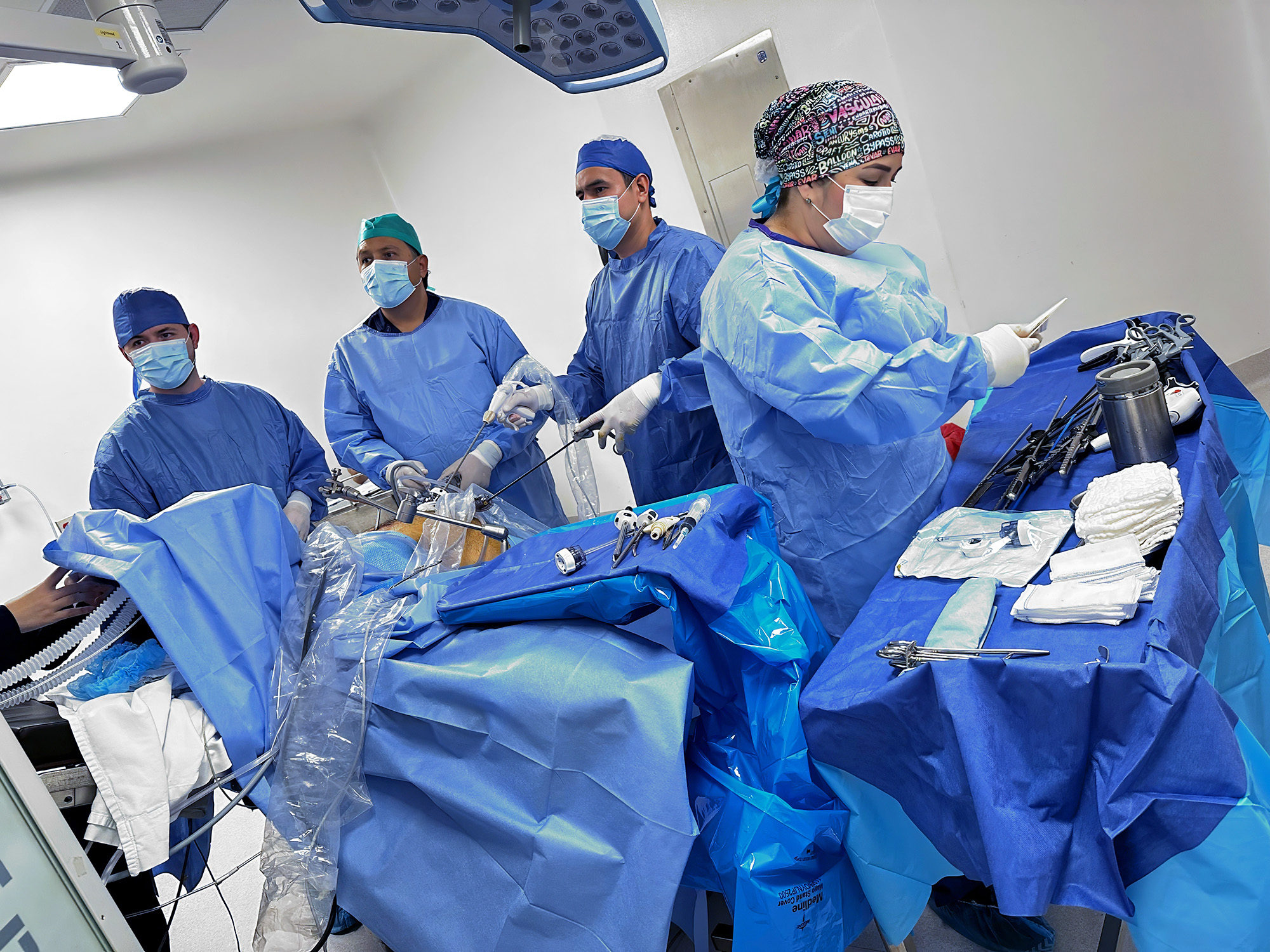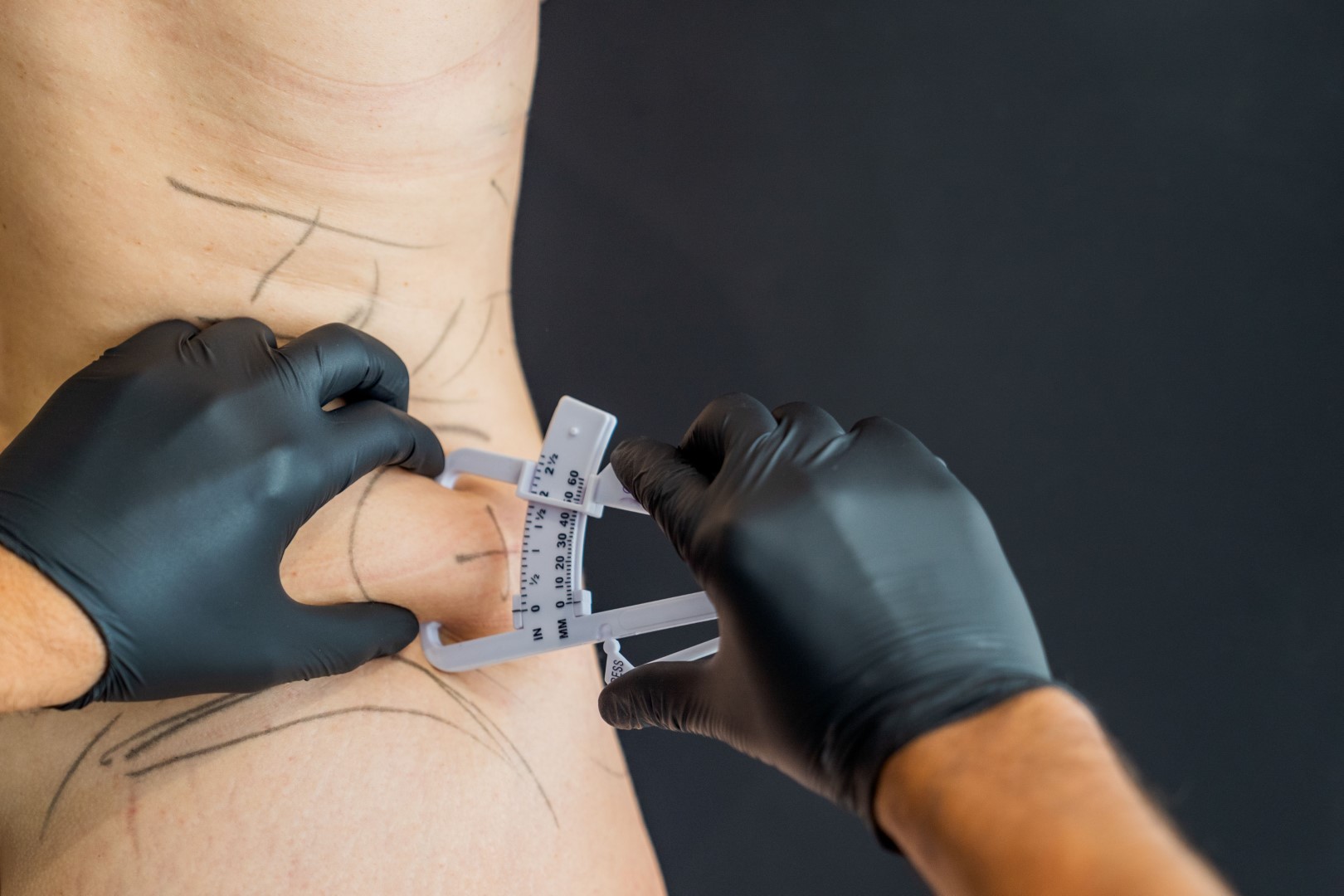In the dynamic field of Bariatric Surgerythe Mini Gastric Bypass has established itself as an innovative and effective alternative, particularly in specialized centers such as the one at the Dr. Luis Cano at Tijuana, Mexico. This procedure represents a significant advance in the fight against severe obesity, offering a less invasive but equally effective solution in comparison to the traditional Gastric Bypass. Its growing popularity is due to the combination of effective weight loss results and faster recovery, aspects that make it attractive to patients and surgeons alike.
The Mini Gastric Bypassalthough it shares similarities with the Gastric Bypass conventional, has key differences in its technique and results, which make it stand out in the spectrum of surgical options for obesity. In this note, we will explore in depth what is the Mini Gastric BypassThe results of this procedure show how it differs from the standard gastric bypass, its durability and the advantages and disadvantages it offers to those seeking an effective solution to their weight problems.
Our goal is to provide clear and detailed information for those considering this surgical option, helping them to make informed decisions on their path to a healthier and more active life.
What is a Mini Gastric Bypass?
The Mini Gastric Bypass is an advanced surgical technique in the field of Bariatric Surgery. This procedure, perfected by surgeons such as the Dr. Luis Cano at Tijuana, Mexicois a modified and simplified variant of the Gastric Bypass traditional. It is often chosen by patients seeking an effective solution for severe obesity and its associated complications.
In the procedure of Mini Gastric BypassWith the mini bypass, the surgeon creates a small pouch at the top of the stomach, similar to the traditional gastric bypass. However, instead of reconnecting the stomach to two parts of the small intestine (as in the standard bypass), the mini bypass involves only one connection, bypassing a more significant portion of the intestine. This change in the anatomy of the digestive tract leads to a reduction in the amount of calories and nutrients absorbed by the body.
One of the main advantages of the Mini Gastric Bypass is its relative simplicity and the reduction in surgical and recovery time compared to conventional gastric bypass. In addition, it has proven to be effective in long-term weight loss and in the improvement or resolution of obesity-related diseases, such as type 2 diabetes and hypertension.
What is the difference between a Bypass and a Mini Bypass?
Although the Gastric Bypass and the Mini Gastric Bypass share similar goals in terms of weight loss and obesity treatment, there are key differences between these two procedures that are important for patients in making an informed decision.
En primer lugar, la técnica quirúrgica difiere en complejidad. Mientras que el bypass gástrico tradicional implica dos conexiones intestinales (creando una ‘Y’ de Roux), el mini bypass solo requiere una. Esto resulta en una cirugía menos compleja y un menor riesgo de complicaciones como obstrucciones intestinales o hernias internas.
In addition, the Mini Gastric Bypass usually involves a shorter surgical time and, therefore, a quicker recovery. This can be a deciding factor for many patients, especially those concerned about recovery times and risks associated with longer procedures.
However, it is important to note that the mini bypass may have a slightly increased risk of biliary reflux, due to the way the stomach reconnects to the intestine. This is a factor that the Dr. Luis Cano and his team at Bariatric Surgery in Tijuana carefully consider when recommending the most appropriate procedure for each patient.
How many years does the Gastric Bypass last?
The long-term durability and effectiveness of the Gastric Bypass are crucial aspects that patients consider before undergoing this surgery. According to experts such as the Dr. Luis Cano and other specialists in Bariatric Surgery in Tijuanathe effects of the Gastric Bypass are, in many cases, permanent, with the potential to change patients' lives indefinitely.
The surgery of Gastric Bypass not only aids in significant weight loss, but also improves or resolves diseases associated with obesity, such as type 2 diabetes, high blood pressure and high cholesterol. These health benefits can last for many years, as long as the patient maintains a healthy lifestyle.
However, it is important to recognize that long-term success depends largely on the patient's commitment to permanent changes in diet and lifestyle. Surgery is a powerful tool for weight loss, but weight maintenance and overall health requires a healthy diet, regular exercise and, in some cases, ongoing psychological support.
Most patients experience the majority of weight loss in the first 12 to 18 months after surgery. After this initial period, the focus is on maintaining that weight loss. Adherence to recommended nutritional and lifestyle guidelines is key to preserving the long-term results of surgery.
Advantages and Disadvantages of the Mini Gastric Bypass
The Mini Gastric Bypass is a popular choice among bariatric surgeries, offering several significant advantages, but also some disadvantages that should be carefully considered.
Advantages of the Mini Gastric Bypass:
- Least Invasive Procedure: Generally, the mini bypass is less invasive than the traditional gastric bypass, which means a shorter surgical time and faster recovery.
- Effective Weight Loss: As with standard gastric bypass, patients can expect significant weight loss, often resulting in an improvement in obesity-related health conditions.
- Lower Risk of Surgical Complications: As a less complex surgery, the mini bypass may have a lower risk of certain postoperative complications.
Disadvantages of the Mini Gastric Bypass:
- Risk of Biliary Reflux: The mini bypass may increase the risk of biliary reflux in some patients, which may require additional treatment or, in rare cases, revision surgery.
- Nutritional Deficiencies: As with other bariatric surgeries, patients may need lifelong vitamin and mineral supplements to prevent nutritional deficiencies.
- Permanent Changes in Diet and Lifestyle: Patients must be prepared for significant and permanent changes in their diet and lifestyle, which can be challenging for some.
The Dr. Luis Cano and his team at Tijuana, MexicoThe mini-gastric bypass is the most appropriate option for each patient, considering both the advantages and disadvantages of the procedure.
The decision to undergo bariatric surgery, such as the Mini Gastric Bypassis a significant step on the road to a healthier and more active life. Throughout this article, we have explored essential aspects of this surgical option, from its definition and differences with the traditional gastric bypass, to its durability and the balance of advantages and disadvantages it entails.
It is essential for patients to understand that, although the Mini Gastric Bypass offers an effective path to significant weight loss and improved quality of life, it also requires a lifelong commitment to diet and lifestyle changes. Surgery is a powerful tool, but long-term success depends on the adoption of healthy habits and continued follow-up.
Specialists such as Dr. Luis Cano at Bariatric Surgery in Tijuana play a crucial role in guiding patients through this process, ensuring that they receive the support and guidance they need to achieve and maintain their health goals.
Ultimately, the Mini Gastric Bypass can be a transformative opportunity for those struggling with severe obesity, offering not only a physical change, but also the possibility of a renewed outlook on life and wellness.






